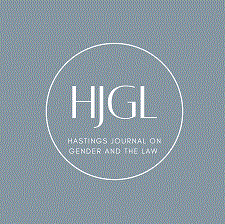
Abstract
Annually thousands of babies are born exposed to alcohol or illicit drugs while in their mother's womb. While the government has addressed the problem by punishing pregnant women and their children, the number of affected infants continues to rise. This is largely due to states taking gendered, punitive and illogical actions, which are antithetical to the social, scientific and medical research that has shown that treatment, not punishment, is the appropriate means to deal with the problem. Instead of addressing the problem honestly in search of a practical solution, states have focused on casting blame and meting out punishment upon women. In this article, the authors review the state actions taken against chemically dependent women, examine the scarcity of treatment options available for pregnant women and discuss the importance of treating the problem as a public health issue. They conclude that to effectively limit the number of infants exposed to substances in utero, many sectors in society need to work together with the goal of providing opportunities for chemically dependent women to get the help they need to beat their addiction. The authors propose a therapeutic jurisprudential model centered around community linkages among the government, health care systems, insurance providers and medical and justice professionals, which would not only address treating pregnant substance abusers, but more importantly, deal with the underlying issues of female substance abuse as a whole in the hope that by helping women avoid the pitfalls of addiction in the first place, the problems associated with substance abuse during pregnancy would decrease precipitously.
Recommended Citation
David C. Brody and Heidee McMillin,
Combating Fetal Substance Abuse and Governmental Foolhardiness through Collaborative Linkages, Therapeutic Jurisprudence and Common Sense: Helping Women Help Themselves,
12 Hastings Women's L.J. 243
(2001).
Available at: https://repository.uclawsf.edu/hwlj/vol12/iss2/2

